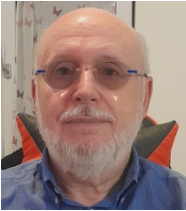Richard G. Hersh, Chiara De Panfilis
This book focuses on the practical utility of key precepts of Transference-Focused Psychotherapy (TFP) in contemporary psychiatry. This volume actively addresses the pressing public health crisis related to high numbers of patients with personality disorder pathology, often with significantly compromised functioning associated with marked social burdens related to health costs and lost productivity.
TFP is one of the empirically validated treatments for patients with borderline personality disorder (BPD). Building on this evidence base, the contributors to this volume describe their work in multiple clinical situations utilizing these principles with varying patient populations in different treatment settings. These settings include: the adult and adolescent day hospital, short term and extended inpatient hospitalizations, group therapy, and a range of outpatient services. Each chapter follows a consistent format to cover patient population, nature of treatment setting, overview of financial support, training of clinicians, treatment targets, elements of TFP employed, measurement of effectiveness, case study examples, and future research goals. Contributors from different backgrounds describe active use of TFP principles in their work, with adjustments from standard TFP protocol made accordingly.
Implementing Transference-Focused Psychotherapy Principles builds on the growing literature about TFP by expanding the focus beyond the extended individual psychotherapy format. The text will resonate with psychiatrists, psychologists, social workers, and mental health counselors, among others. Clinicians involved in public health systems will find the material outlined of particular value in our evolving world of mental health services.
Implementing Transference-Focused psychotherapy principles. (2024). https://doi.org/10.1007/978-3-031-68062-5









